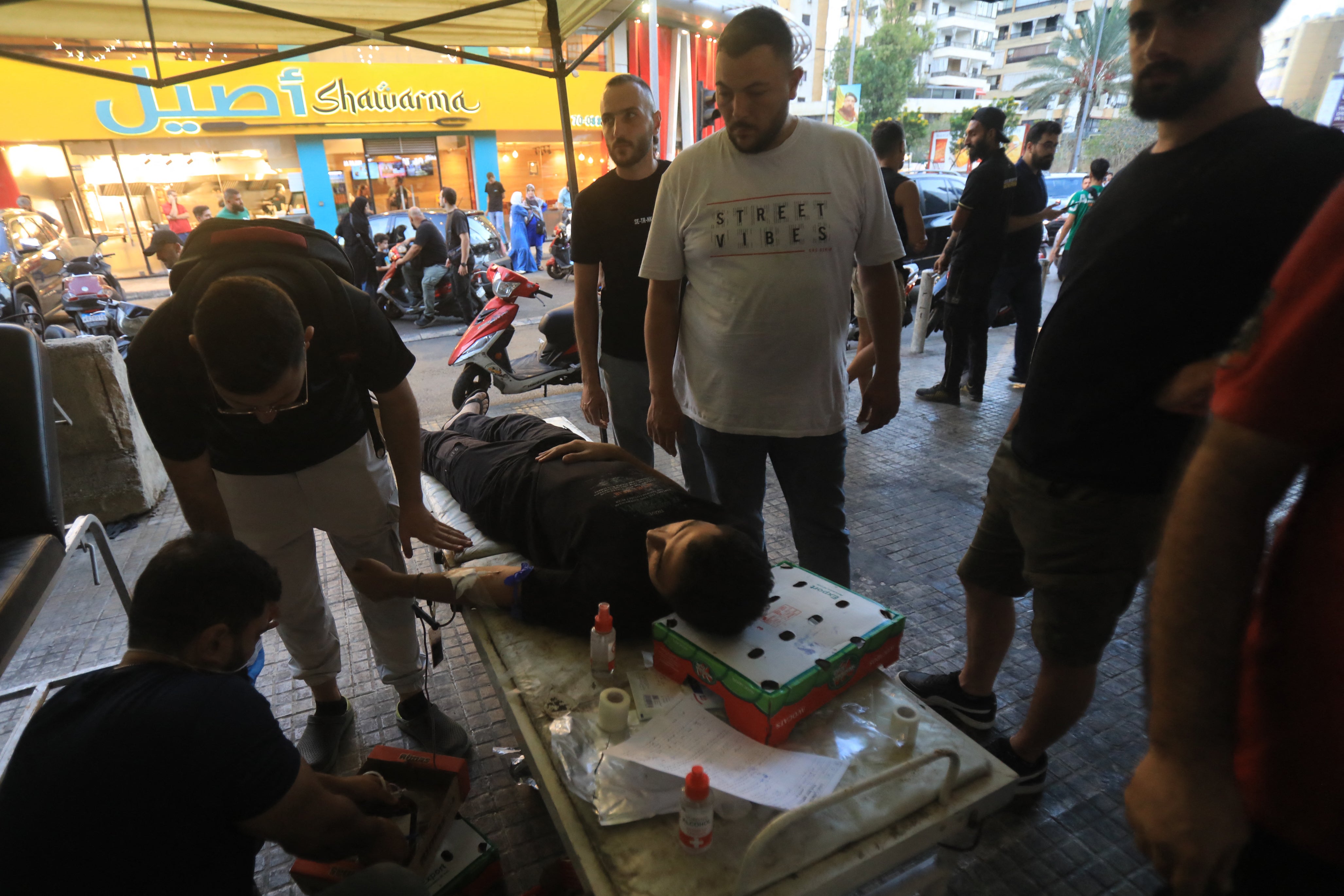Taiwanese company Gold Apollo denies making pagers used in Lebanon attack: ‘This is very embarrassing’
Gold Apollo claims beepers were actually made by Hungary-based BAC Consulting
Your support helps us to tell the story
From reproductive rights to climate change to Big Tech, The Independent is on the ground when the story is developing. Whether it's investigating the financials of Elon Musk's pro-Trump PAC or producing our latest documentary, 'The A Word', which shines a light on the American women fighting for reproductive rights, we know how important it is to parse out the facts from the messaging.
At such a critical moment in US history, we need reporters on the ground. Your donation allows us to keep sending journalists to speak to both sides of the story.
The Independent is trusted by Americans across the entire political spectrum. And unlike many other quality news outlets, we choose not to lock Americans out of our reporting and analysis with paywalls. We believe quality journalism should be available to everyone, paid for by those who can afford it.
Your support makes all the difference.Taiwanese electronics maker Gold Apollo has denied producing the pagers used in Tuesday’s deadly attack in Lebanon, which killed at least nine people and injured nearly 3,000.
Gold Apollo founder and president Hsu Ching-Kuang said the devices were manufactured by BAC Consulting, a company based in Budapest, Hungary, licensed to use the Taiwanese brand.
“The product was not ours. It was only that it had our brand on it," Mr Hsu said.
Pictures of the destroyed pagers analysed by Reuters showed similarities with Gold Apollo’s devices, but the company maintained it had no involvement in the design or manufacturing of the AR-924 model. “We clarify that this model is produced and sold by BAC,” it said in a statement.
A Lebanese security source claimed that Hezbollah had ordered 5,000 pagers from Gold Apollo. Mr Hsu said his company had no knowledge of the pagers being rigged to explode.
Gold Apollo’s president offered a frank reaction to his company being associated with the pager attack. “We may not be a large company, but we are a responsible one,” Mr Hsu said. “This is very embarrassing.”
The beepers were rigged with explosives by Israeli operatives and detonated remotely, the New York Times reported.
Hezbollah, which has been engaged in almost daily exchanges of fire with Israel since the start of the war in Gaza, has started a "security and scientific investigation" into the attack.

Hezbollah had reportedly ordered its members in February to stop using mobile phones, warning they could be tracked by Israeli intelligence.
While the Israeli military has declined to comment, experts told Reuters that the Israeli spy agency Mossad may have planted the explosives in the pagers months earlier, possibly after infiltrating the supply chain.
A Hezbollah official told the Associated Press the beepers were a new brand, but declined to say how long they had been in use.
The official said the handheld pagers heated up and exploded, killing at least two Hezbollah members. The rest of those killed were reported to be civilians, including a young girl.
One of those killed was Hezbollah politician Ali Ammar’s son. "This is a new Israeli aggression against Lebanon," Mr Ammar said. "The resistance will retaliate in a suitable way at the suitable time."
Additional reporting by agencies
Subscribe to Independent Premium to bookmark this article
Want to bookmark your favourite articles and stories to read or reference later? Start your Independent Premium subscription today.

Join our commenting forum
Join thought-provoking conversations, follow other Independent readers and see their replies
Comments